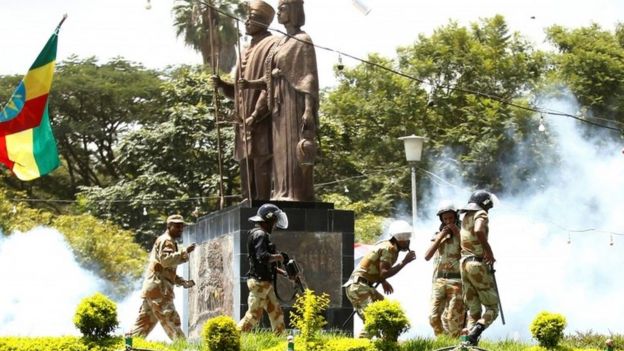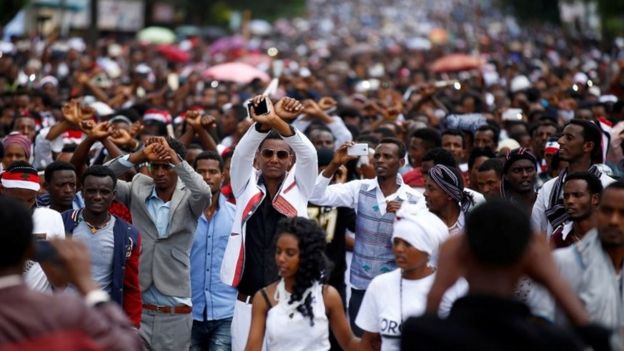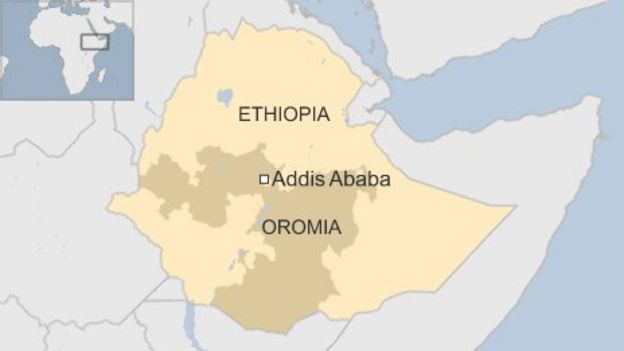Dozens have been killed and injured in Ethiopia’s Oromia region after security forces confronted protesters at a festival, witnesses say.
Some people died in a panicked stampede after police employed tear gas and baton charges, they said.
Thousands had gathered for a religious festival in Bishoftu, 40km (25 miles) from the capital Addis Ababa.
Some reports said police responded after anti-government protesters threw stones and bottles.
Others said demonstrators were entirely peaceful.
Ethiopia’s government said in a statement that “lives were lost”, adding: “Those responsible will face justice”.
An Oromo activist, Jawar Mohamed, is quoted as saying nearly 300 people were killed and many more injured. He said troops and a helicopter gunship had opened fire, driving people off a cliff and into a lake.
There has been no independent confirmation of this.
 Image copyrightREUTERS
Image copyrightREUTERS Image copyrightREUTERS
Image copyrightREUTERSThere have been months of deadly clashes in Ethiopia recently.
People in the Oromia and Amhara regions have complained about political and economic marginalisation.
The US has expressed concern about what it termed the excessive use of force against protesters.

Crowds at Sunday’s Oromo festival, which AP news agency said had attracted two million people, chanted “We need freedom” and “We need justice”, witnesses said.
Some participants crossed their wrists above their heads, a gesture that has become a symbol of Oromo protests.
The unrest was sparked last November by a plan to expand the capital into Oromia. This led to fears that farmers from the Oromo ethnic group, the largest in Ethiopia, would be displaced.
The plan was later dropped but protests continued, highlighting issues such a
